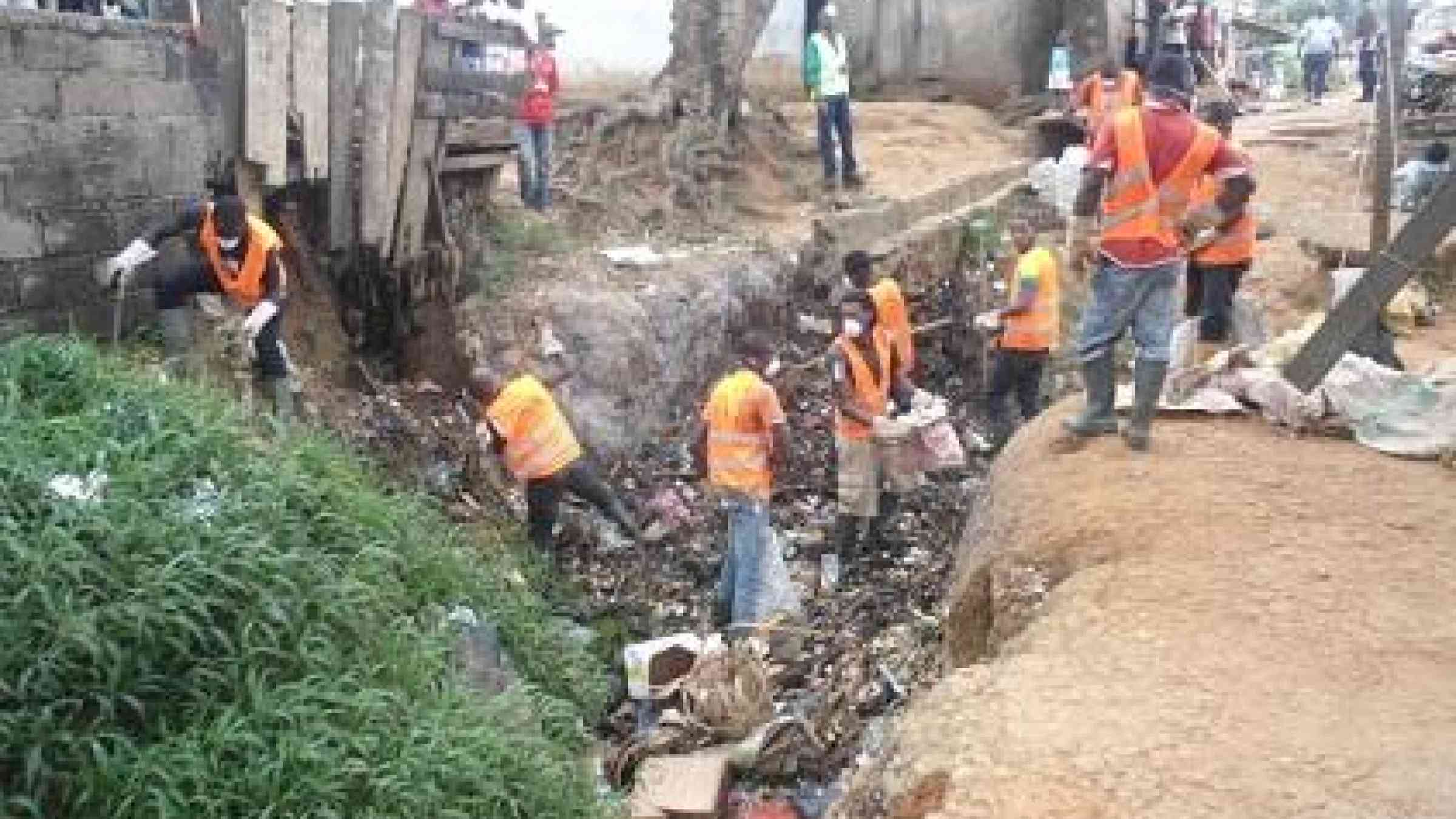Keeping it local to curb risk in Cameroon

YAOUNDE, 13 October 2015 – Residents of a flood-prone community in Cameroon’s capital Yaoundé are deploying local knowledge to curb the risk of disasters and epidemics by tackling the trash that blocks drainage ditches.
To honour its members' efforts, the 25,000-strong community of Nkolbikok has been named a Champion of Disaster Risk Reduction by UNISDR, to mark International Day for Disaster Reduction today.
Nkolbikok, part of Yaoundé’s District 6, is crisscrossed by streams and drainage ditches which are swollen by the six-month rainy season. A nearby bridge constructed several years ago also pushes water into the area.
Garbage dumped in the watercourses clogs into dams, and the overflow swamps homes, stores and workshops. Around one-third of the area’s families are exposed to floods, according to local authorities.
By wrecking property and killing livestock, the floods set back community development repeatedly. They also raise the risk of diseases such as cholera, which struck in 2011 and claimed dozens of lives. A study in 2012 found that 51% of children under five years of age suffered from diarrheal diseases.
“This is the main problem here,” said community leader Mr. Jean-Bernard Akoa Fouda, pointing to a ditch heaped with waste. “It’s a combination of a lack of civic sense, and a lack of other solutions.”
“We decided to act to improve things for ourselves. It’s all about human investment,” he said.
Every other Sunday, networks of community volunteers come together to clear the ditches. They keep regular track of water flows to identify potential trouble spots.
Other teams have worked to widen the beds to improve the flow, and to create low-cost rubbish collection services to encourage people to not dispose of it in the ditches.
Garbage removal is just part of the process, said local campaigner Mr. Simon Pierre Dieudonné Etoga, of the “Tam-Tam Mobile” association, noting that recycling offers new economic opportunities for locals.
“Garbage is basically just a resource that happens to be in the wrong place at the wrong time. It’s solid gold,” he said, punning the French word for trash.
Working with local NGOs, residents of Nkolbikok have also created a subsidized programme for families to obtain improved latrines and installed several public fountains offering free clean water.
“This is all based on dialogue with the community,” said Mr. Etoga.
These and similar projects in Yaoundé have received backing from the local government and Cameroon’s Ministry of Housing and Urban Development, as well as the European Commission and the United Nations.
Community-based projects are a key component of the Sendai Framework for Disaster Risk Reduction, a 15-year international agreement adopted in March this year. Its key goals are to reduce disaster mortality, numbers of people affected and economic losses.
Flooding is not the only hazard in Yaoundé, a city of 1.8 million people.
The capital is built on seven hills, and up above low-lying settlements such as Nkolbikok, precariously-perched communities risk landslides and rockfalls.
Such districts, with their cheap land and supply of stone, are a magnet for rural migrants seeking a better life in the city. But mining the rock and failing to dig drainage channels destabilizes the slopes.
The authorities are promoting safer construction methods, digging ditches, and informing residents of the dangers.
“We’re launching a volunteer network. We’ve also mapped the risk zones to make things clear, and have sirens and a text message alert system,” said Mr. Jean-Jules Nkengne, disaster risk reduction expert at Yaoundé 6 city hall.
Understanding risk is a key to the successful implementation of the Sendai Framework in Cameroon and worldwide.
“Disaster risk reduction is about raising awareness,” local consultant Mr. Syriaque Talom said. “It’s about having full knowledge of the facts, and of taking action as a result to reduce the risks.”